There are many reasons why someone would pack up all their things and move to another country.
It could be better opportunities, climatic and political conditions, or even retirement.
However, moving to South Korea with little or no knowledge of the country or its cultural and social dynamics could be problematic.
Here is a comprehensive review of the pros and cons to help you adjust to life in South Korea.
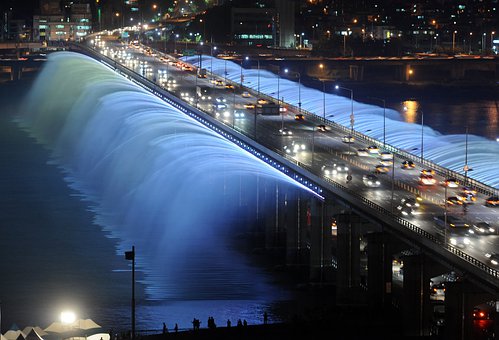
Contents
- Pros of Living in South Korea
- Cons of Living in South Korea
- Pros and Cons of Living in South Korea – Summary Table
- South Korea Safety Overview
- Frequently Asked Questions
- Do I have to learn Korean when I visit South Korea?
- What currency is used in South Korea?
- How is internet connectivity in South Korea?
- Is South Korea safe to live and work in?
- Does South Korea have a transportation system?
- How hospitable is South Korea to LGBTQ immigrants?
- What is the relationship with North Korea?
Pros of Living in South Korea
Let’s address some of the advantages of living here:
1. South Korea’s Beauty and Serenity
70% of South Korea is just rolling hills and mountains, which makes it a haven for hikers.
You do not have to be far from the city to discover hidden temples and gems.
Bukhansan Mountain is right in the middle of Seoul and is among the most enchanting national parks in the country.
Additionally, the countryside is full of life with rivers and green trees.
2. Proper Safety and Health
Considering the density and size of its cities, South Korea has a very low crime rate.
You probably already know that you can leave your belongings anywhere and find them untouched hours later.
You don’t need to worry about armed robberies and petty crimes in South Korea.
Hospital bills can be a burden, but not in South Korea.
Health care is affordable and easy to access.
Health care bills will not bankrupt you even if you do not have insurance.
Additionally, there are many clinics in all neighborhoods, so visiting the doctor does not take much time.
3. Great Infrastructure
South Korea has a well-maintained and modern infrastructure, making moving around even without a car easy.
Both the private sector and the government are involved in infrastructure services and projects.
Public transport is among the best worldwide, boasting of train, subway, bus, and cab services linked to a single card that can be used anywhere in the country.
Furthermore, the country has some of the fastest internet speeds globally, so connectivity and working remotely are a breeze.
Public washrooms are always clean and nearby.
4. Adequate Housing
Housing in South Korea is well-made, comfy, and high-tech.
Many modern apartments have crisp features, such as a video intercom that supports password entry and shows you who is at the entrance.
Most houses have double pane windows, so they are bug-proof.
Winters can get nippy in South Korea, so you will appreciate the heated floors and insulation.
As with anywhere in the world, make sure to conduct proper research before you move in.
Avoid garden floor rooms and rooftop rooms even though they are usually cheap.
5. Amazing Delicacies
Food is right at the heart of South Korean culture.
However, South Korean cuisine is not just Doenjang and Kimchi.
There are many other dishes based on dashi, soy sauce, seaweed, and sesame seed oil, to mention a few.
The restaurants there offer fast service and no tipping, so they are perfect.
Furthermore, they have special ways of getting attention from your server, usually just yelling “yogiyo” or pressing a call bell.
South Korean cafes are comfy, modern, diverse, and creative despite the café culture being fairly new there.
Non-Korean restaurants and ingredients are increasing due to the rising foreign population and adoption of new cuisines by South Koreans who travel overseas.
6. An Efficient System
One of the best things about South Korea is that everything works seamlessly.
People respond to emails fast, are never late anywhere, and always get back to you on time.
There is a seriousness to getting things done.
You can call taxis and get grocery delivery quickly.
Furthermore, South Korean websites and apps are innovative, which allow you to do things like banking and shopping on your phone.
The postal service is reliable and fast, the police stations are a breeze, and all public services are run efficiently.
Additionally, there are never any transportation, power, or infrastructure issues.
7. Limitless Opportunities
South Koreans have a vibrant consumer culture, and rightly so since their average incomes are among the highest in the world.
In South Korea, you can work your way to the top with just a mere college degree.
But, unfortunately, there are not many countries where you can do that.
8. 24-Hour Convenience Stores
You don’t have to walk far to come across a 24-hour convenience store in South Korean towns.
You can buy anything from toiletries to groceries, alcohol, ready-made meals, and snacks here.
Public drinking is legal in South Korea, and you can enjoy your meal or beer on the seats they have outside the convenience stores.
These stores also offer a lot of amazing specials.
9. Proper Waste Disposal
Waste disposal regulations are stringent in South Korea, and you can be fined if you do not recycle.
There are color-coded bags for separating your plastic bottles, food waste, glass bottles, styrofoam, and paper.
It is a part of their lives; even their children know how to separate trash and recycle from an early age.
10. A Coffee Country
Believe it or not, the coffee mania has reached South Korea.
Building entrances and streets are lined with cafés.
So it comes as no surprise that Seoul is the city that houses the most Starbucks coffee shops in the world.
There are various coffee shops, from local-themed shops to international chains.
People spend a lot of time in these cafés either catching up with friends, studying or reading a book.
Cons of Living in South Korea
Let’s keep it real about the disadvantages of living here as well:
1. An Expensive Nation
The cost of living in South Korea can be pretty high.
Apartments in major cities can cost up to SGD 1600.
Rental prices are not that high outside the urban areas.
Utility costs in newer apartments are usually combined into a single fee, so do not sign any contracts before you have read the fine print thoroughly.
Locally produced groceries are cheap, but if you want any imported foodstuffs, you will have to pay a lot more, especially since they are usually sold in bulk.
2. Air Pollution
Air pollution is a serious problem in South Korea, especially in Seoul, the capital city.
Seoul is among the cities with high rates of air pollution globally.
However, the rapid industrialization in the country is mostly to blame, according to the quality of air experts.
Korea has also suffered one of the worst yellow dust storms in the past decade.
The storm is often accompanied by harmful particles like carbon monoxide, sulfur, heavy metals, and carcinogenic material.
It also carries viruses, fungi, bacteria, herbicides, pesticides, and plastic components.
3. Lack of Tolerance for Immigrants
It does not matter how long you have been living there or how well you know the language; you will always feel like an outsider.
Some bars and nightclubs have xenophobic signs to keep foreigners away because of past events that happened there involving foreigners.
It is not easy to build a solid relationship with a local unless they are westernized South Koreans who have lived abroad at some point in their life.
4. Unaffordable veggies and Salads
Even though Korean cuisine is savory, it is not for people with weak stomachs.
Most menus consist of various meat dishes, the most common being barbecue pork.
The dishes are always served with spicy red sauce.
Kimchi and rice are fundamental elements of most meals in South Korea.
Sadly, vegetables and fruits are very expensive in the grocery stores.
So if you love vegetable salads and plant foods, you might experience a hard time.
5. Erratic Weather
The Asian Monsoon affects South Korea’s climate: during winter, cold air from Asia is prevalent, and in the summer, the country experiences warm and moist air from tropical regions.
This means the precipitation pattern is not what you would expect: winter is the driest season while summer is the rainiest.
Furthermore, South Korea experiences typhoons in summer and autumn.
6. Gender Inequality
South Korea is far behind most developed countries in gender equality.
Koreans usually blame their culture for this.
South Korea is a cultural export and high-tech powerhouse.
However, the country lags in gender equality to the extent of women’s earnings.
Most experts blame it on Confucianism, which is a prevalent philosophy in Asia.
The good thing is that most Koreans are working to reinvent and reinterpret those traditions.
7. High Suicide Rate
According to research, South Korea has a very high suicide rate.
In fact, it is one of the highest in the world.
Most people believe this is caused by the long working hours and workplace stress.
Additionally, loneliness and the level of poverty among the older population are other factors.
Nevertheless, the country has already taken measures to counter this tragic statistic.
The South Korean legislature is actively improving and updating the Mental Health Act.
8. Youth Unemployment
South Korea’s economy is robust, but it is slowly plummeting.
With giant corporations like LG, Samsung, and Hyundai, start-ups are having trouble getting ahead in society.
These companies offer poor contract terms to smaller companies who are forced to accept them or risk their businesses going bankrupt.
This is crippling the job-finding ability of most young people.
Over 11% of the youth have been unable to find jobs.
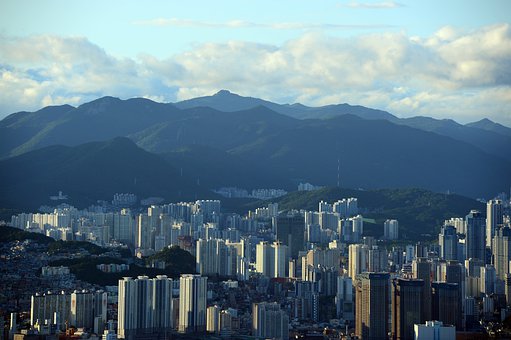
Pros and Cons of Living in South Korea – Summary Table
| Pros of Living in South Korea | Cons of Living in South Korea |
|---|---|
| 1. South Korea’s Beauty and Serenity | 1. An Expensive Nation |
| 2. Proper Safety and Health | 2. Air Pollution |
| 3. Great Infrastructure | 3. Lack of Tolerance for Immigrants |
| 4. Adequate Housing | 4. Unaffordable veggies and Salads |
| 5. Amazing Delicacies | 5. Erratic Weather |
| 6. An Efficient System | 6. Gender Inequality |
| 7. Limitless Opportunities | 7. High Suicide Rate |
| 8. 24-Hour Convenience Stores | 8. Youth Unemployment |
| 9. Proper Waste Disposal | |
| 10. A Coffee Country |
South Korea Safety Overview
READ THE FULL REPORT: South Korea Safety Review
Safety Index:
- OVERALL RISK: LOW
- TRANSPORT & TAXIS RISK: MEDIUM
- PICKPOCKETS RISK: MEDIUM
- NATURAL DISASTERS RISK: HIGH
- MUGGING RISK: LOW
- TERRORISM RISK: LOW
- SCAMS RISK: MEDIUM
- WOMEN TRAVELERS RISK: LOW
Frequently Asked Questions
Do I have to learn Korean when I visit South Korea?
English is widely spoken in commerce and business.
However, Koreans are proud of their language, and learning Korean makes navigating the country and understanding the culture easier.
What currency is used in South Korea?
The Korean currency is the Won, and it is used throughout the country.
Visa and Mastercard are also widely used.
How is internet connectivity in South Korea?
South Korea has very developed internet ecosystems, and you can access the internet anywhere, especially in the major cities.
Is South Korea safe to live and work in?
The crime rates in the country are lower than in the UK, US, and other developed countries.
It is a safe place for immigrants to work, live or travel.
Does South Korea have a transportation system?
The transportation system in the country is extensive, boasting buses, ferries, railways, subways, taxis, and more.
Trains offer the best option for getting around the country.
How hospitable is South Korea to LGBTQ immigrants?
Seoul and other major cities have LGBTQ-friendly areas and gay bars.
Despite that, it is best to be discreet in remote regions, since people are more conservative there.
What is the relationship with North Korea?
The situation is tense, but intensification is unlikely.
There might be sporadic acts of aggression toward the South Korean army, but they are usually resolved immediately.
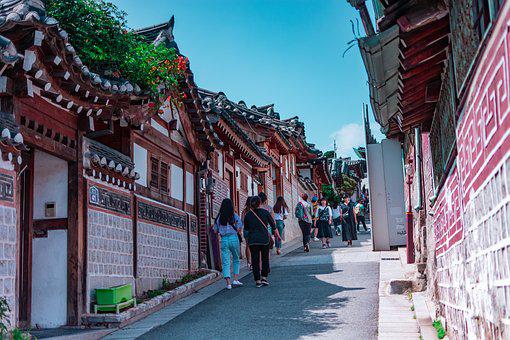
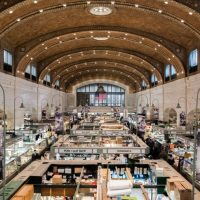
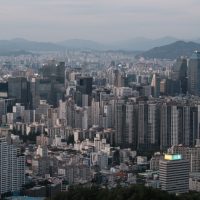
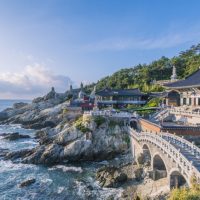
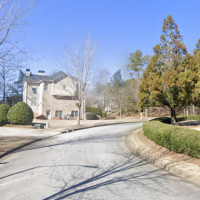

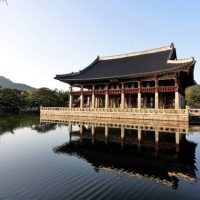





Hi there. After reading this article, my outlook on the Republic of Korea has been enriched. I learned a lot about what to pay attention to. Thank you. Keep it up!
Don’t forget that Korean men have to leave to enlist in the army for 10 years
18 months in S Korea, not 10 years
My Goodness!! 10 years?!
I think you are referring to North Korea where mandatory service is 10 years for men and 7 for women. South Korea is 18 months for men.
Planning to visit Korea for 3 months. Saving enough money, so I can do. it. I love the country. Never been to it, but for what I’ve read and seen, it’s the perfect place to visit, It has so many interesting places, Delicious food. Shopping is fantastic there. So if God permits I’ll be there in a few years.
i hope you make it
Thank you …this guide has been so helpful..I can’t now start on planning on my journey .
Absolutely love this country!!!!
Wow! This is so good that someone is finally admitting the cons of going!! Thank you!
So good!